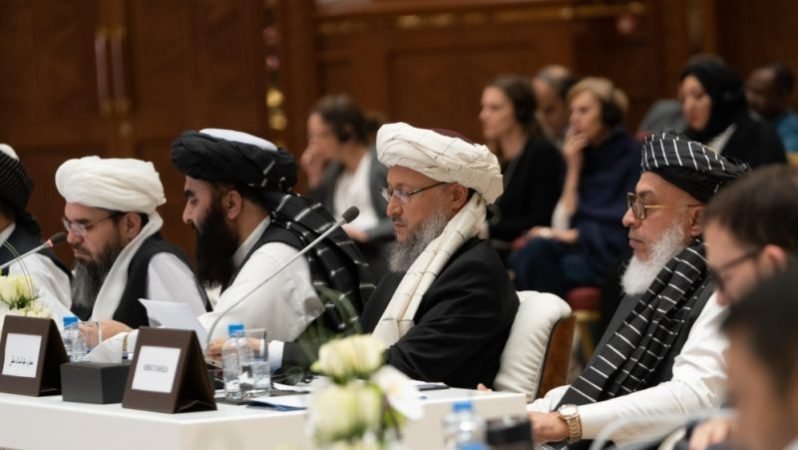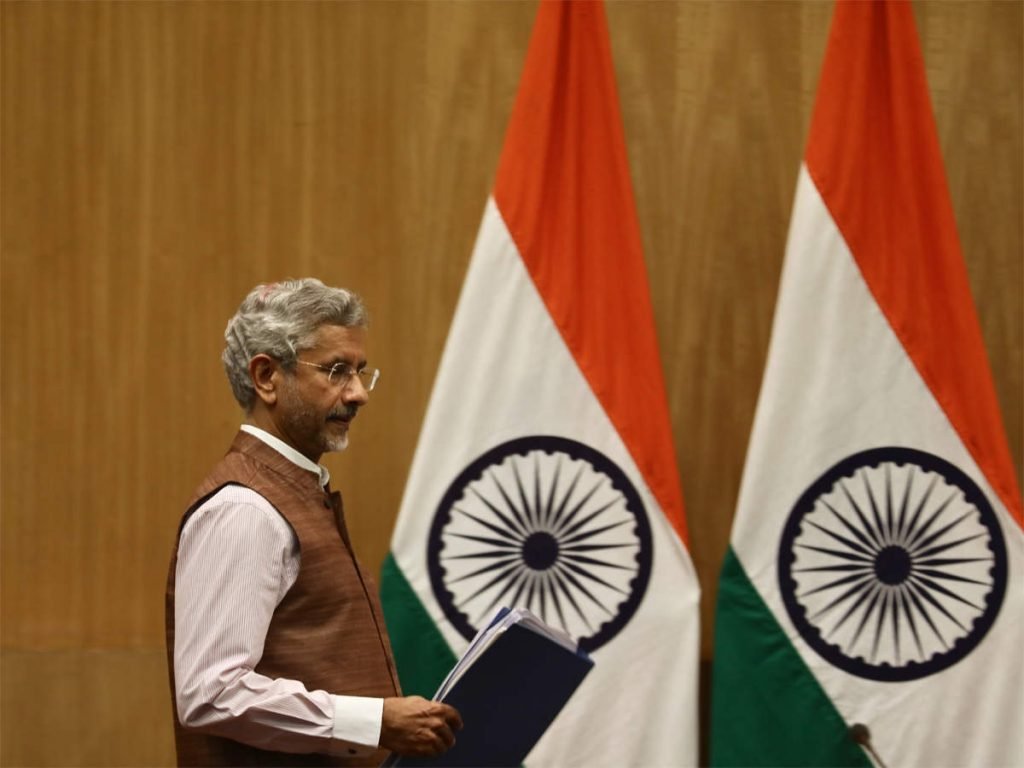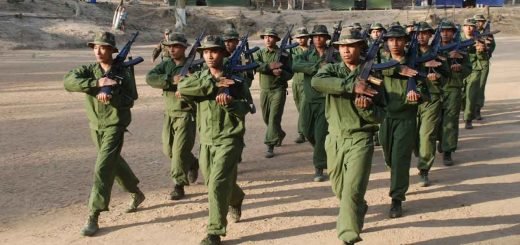India’s Counter-Terrorism challenge looms large in Afghan Quagmire

As the intra-Afghan negotiation goes on in Doha, the Afghan Government and the Taliban, in a historic first, are directly engaging with each other, in a bid to possibly end a four-decade-old war in Afghanistan. Irrespective of the outcome and intricacies around the status of the future Afghan state, the road to power for the Taliban, sooner or later, looks clear. The group’s homecoming in Kabul is inevitable.
For India, this prospect poses a serious challenge, not only to the broad presence we have culminated over the last two decades under the US and NATO’s security umbrella but also to counter-terrorism, given Taliban’s proximity with transnational and regional Jihadi organizations including Kashmiri militants groups.

India’s concern
In his opening remark in the inauguration ceremony of intra-Afghan negotiation, India’s foreign minister, S Jaishankar, wished success for negotiation. However, he also expressed New Delhi’s key concern, that the Afghan soil should not be used for anti-India activities- an indirect reference to various Jihadi Organisations allied to the Taliban and the ISI, that are currently active in Afghanistan.
Various reports in the past months indicate cadres of anti-Indian Kashmiri militant groups like Lashkar-e-Taeba and Jaesh-e-Muhammad have been actively fighting along the sidelines of Taliban in Afghanistan.
Whether these cadres were moved into Afghanistan with prior approval from the ISI or not, isn’t certain yet. Taliban also maintains an independent relationship, away from the influence of ISI, with various Pakistan militant organizations. But, the presence of Kashmiri militant organizations indicates an overlapping interest of both the entities here.
Taliban has a history of sheltering regional and Islamist militant groups like the Islamic Movement of Uzbekistan (IMU), Khatiba Imam al-Bukhari (KIB), Tehrik-e-Taliban Pakistan (TTP), and transnational terrorist group Al-Qaeda. The Kashmir militant groups are just a new addition to the list after a gap of 20 years.

Taliban’s unholy alliances with regional terrorist groups
Under the US-Taliban deal signed on February 29 of this year, the Taliban is bound to not let the Afghan soil be used for planning and executing terrorist attacks on the US and its allies. Even after the signing of the agreement, a UN report clearly said, Al Qaeda is active in Afghanistan. Its rank and file maintains regular contact and coordination with the Taliban- a claim Taliban denied. On the question of the presence of Punjabi fighters, linked to kashmiri militant groups, Taliban says, there are no foreign fighters in Afghanistan.
With all the indications we have so far, it is unlikely to expect the Taliban to break linkage with these militant groups any time soon, with whom they share a historical bond rooted in ideological leanings. A recent confidential NATO report says the Taliban has almost “achieved financial and military independence”, making the group “immune” to its continued relationship with terrorist groups including Al Qaeda.
A report in the foreign policy magazine suggests, despite the commitment the Taliban has pledged under the US-Taliban deal, the lower cadre of the group maintains close contact and coordination with these foreign militant groups irrespective of the orders from their senior leadership.
Moreover, what should worry the international players and India more, is the emergence of a tactical alliance between the different militant and terrorist groups operating in Afghanistan. After the signing of the US-Taliban deal, there has been a spike in violence and high-scale attack. But interestingly, the Taliban has largely desisted from taking responsibility for these big attacks. Instead, groups, with no prior logistics and capability in place of attacks, have been taking the responsibility of it.

Pakistan’s ISI at play
Haqqani Network, the most powerful militant sub-group in the Taliban, and a veritable arm of ISI, has been used to target the Indian interests inside Afghanistan.
In the late 90s, ISI shifted its training camps of Kashmiri militant groups inside Afghanistan in the bordering provinces of Khost and Paktia under the pressure from the US Government for terror sponsorship. Al Qaeda, along with the Haqqani network, provided training and sanctuary to Kashmiri militants there.
The complexity of ISI and AL Qaeda came to light after the hijacking of Indian Airline IC 814 by Harkat-ul-Ansar, a Kashmiri terrorist group, in December 1999. Thereafter, the US assistant secretary of the state, Karl Inderfurt, gave a stern warning to Gen Mushraff to reign in the extensive Al Qaeda network in Pakistan and in neighbouring provinces of Afghanistan.
The ISI failed to act because the same Al Qaeda network had also been facilitating the Kashmiri militant groups. In the coming days in Afghanistan, the possibility – the Haqqanis replacing Al Qaeda’s role in this regard- can’t be completely ruled out easily.
Challenging days ahead
With the departure of US and NATO troops, and ongoing intra-Afghan talks with uncertain outcomes, only to exacerbate the already precarious security environment in the country. The assumption, that Pakistan would not try to fish in the troubled water to harm India, is too much to expect from a country whose foundation of Afghan Policy has long remained the containment of Indian influence in its next-door neighbour.

An impending Taliban’s return to power, emboldened allied militant groups and Pakistan under the watch of the Financial Action Task Force (FATF) for terror sponsorship – all these conditions, in fact, strengthen the belief that ISI will most probably, again, shift the sanctuaries of Kashmiri militant groups in the bordering eastern provinces of Afghanistan, a region that has historically been the stronghold of Haqqani Network.
Violence and instability, below a threshold that doesn’t require direct International intervention, in Afghanistan, will serve as a catalyst for ISI’s notorious compulsive tendency of using terror as a means to target India.
Haqqanis, and other allied groups in Afghanistan, acting on the directions of ISI, would easily allow Pakistan to maintain deniability as main conspirators; the Taliban, as a group, doesn’t have the ability to control the Haqqani Networks entirely, just like the case of Al Qaeda in the 90s, as it maintains its independent command structure and has a different set of goals. With the International community depending on Pakistan, again, to control the rogue players in Afghanistan, India’s Afghan policy needs take a cue from Iranian balancing act and should move beyond the traditional shackles to accommodate its future national interests in the region.


















